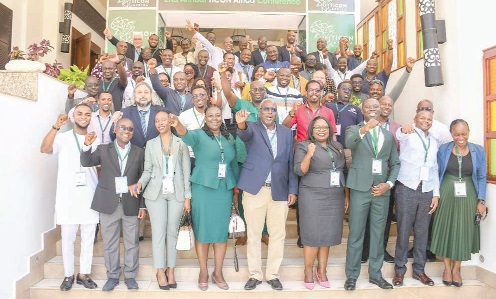
Prof. McBagonluri calls for technology, entrepreneurship blend curriculum
The President of the Academic City University College, Prof. Fred McBagonluri, has called for an educational curriculum that combines entrepreneurship and technology to help prepare young people in Africa to be relevant in the fast-changing global economy.
He explained that learning entrepreneurship helped students to think creatively, and solve real-world problems and also gave them important skills such as financial management and leadership, which were critical not just to starting businesses but also to keeping them running successfully.
Prof. McBagonluri, while highlighting how technology was changing the way students learn, indicated that tools such as virtual reality allowed students to explore 3D environments while augmented reality helped them to work together on projects, boosting their creativity and communication skills.
Innovation Conference
The President of Academic City made this known at the 2024 Technology and Innovation Conference (TICON) in Kenya.
The conference brought together industry leaders and innovators from over 30 countries to advance ICT solutions and ensure sustainable development across the continent.
This year’s conference theme highlighted how African ICT can address unique challenges for economic growth, social inclusion and environmental sustainability.
TICON Africa is the ground-breaking Pan-African body of technology professionals spearheading the ongoing development of the highest possible standards of ICT knowledge and practice across Africa.
Mindset
According to Prof. McBagonluri, Africa’s youth needed to embrace both technology and an entrepreneurial mindset to succeed in the modern world.
He emphasised that Academic City’s approach to education combined classroom learning with practical experience in entrepreneurship and technology, helping students to develop the skills they needed for future jobs.
He also stressed the importance of mentorship, saying that young entrepreneurs and tech enthusiasts needed guidance and support from experienced professionals.
He, therefore, called for stronger partnerships between academia and industry to give students more real-world experience.
